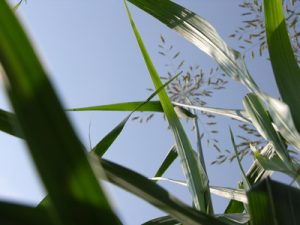Admissions Logistics
Graduate Programs at UNC
The Mitchell lab can accept grad students through three programs: Ecology, Evolution, and Organismal Biology (EEOB), the Environment, Ecology, and Energy Program (E3P), and the Biological and Biomedical Sciences Program (BBSP).
One major difference between these programs is in their degree of interdisciplinarity. E3P is a highly interdisciplinary program, drawing students from the biological, physical, and social sciences. We seek to train students to tackle complex environmental issues spanning across traditional disciplines. It is the only program through which our lab can admit M.S. students. EEOB and BBSP are traditional disciplinary programs. BBSP is for students who want to rotate between lab groups (usually three) during their first year, particularly if your interests include molecular biology.
A second big difference between programs is in the students outside the Mitchell lab with whom you will be trained. If you become a student in E3P, your fellow students will include hydrologists, anthropologists, and policy analysts. If you become a student in EEOB, your fellow students will include evolutionary and organismal biologists. If you become a student in BBSP, your fellow students will chiefly be molecular biologists. In each program, you would interact with more-or-less the same core of biological ecologists.
There are also other important ways in which the programs differ, including in their funding for grad students. Based on the differences among the programs, as well as the lab’s current research and other efforts, we are only considering prospective graduate students who would enter the Department of Biology’s Ph.D. program in Ecology, Evolution, and Organismal Biology. If you believe that the E3P program is the best fit for you, please contact Charles to discuss that before applying.
Financial Support
 Graduate students are supported by a mixture of teaching assistantships (TA’s), research assistantships (RA’s) and fellowship. The baseline form of support for graduate students at UNC, like most institutions, is TA’s. TA’s are generally for classes in the Biology Department. As well as income, TA’s provide students with on-the-job training in teaching and the chance to either expand or reinforce their subject knowledge. RA’s are provided from grant funding to further the research goals of the grant. Typically, students working on RA’s will be expected to contribute both to the core project outlined in the funded proposal, and also to develop their own independent project that complements the original core. Finally, students are also encouraged to seek fellowship funding from both internal and external sources. Charles enjoys mentoring students on writing funding proposals, and graduate students who have submitted NSF Graduate Research Fellowship Proposals after entering the Mitchell Lab have had a high funding success rate.
Graduate students are supported by a mixture of teaching assistantships (TA’s), research assistantships (RA’s) and fellowship. The baseline form of support for graduate students at UNC, like most institutions, is TA’s. TA’s are generally for classes in the Biology Department. As well as income, TA’s provide students with on-the-job training in teaching and the chance to either expand or reinforce their subject knowledge. RA’s are provided from grant funding to further the research goals of the grant. Typically, students working on RA’s will be expected to contribute both to the core project outlined in the funded proposal, and also to develop their own independent project that complements the original core. Finally, students are also encouraged to seek fellowship funding from both internal and external sources. Charles enjoys mentoring students on writing funding proposals, and graduate students who have submitted NSF Graduate Research Fellowship Proposals after entering the Mitchell Lab have had a high funding success rate.
Visting UNC
Each program generally invites top applicants to visit between January and March. If you will be in the area at another time and would like to visit, please feel free to email Charles to make arrangements.
Admissions Process
All programs will closely evaluate your academic credentials, admissions statements, letters of recommendation, and your research experience and interests. For details on the admissions process, please see the websites for the programs listed above. If you have questions about the mechanics of your application, please contact the appropriate program coordinator.
How to apply:
Logistics | Postdocs | PhD Students | MS Students
